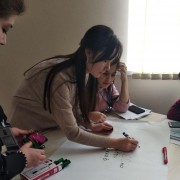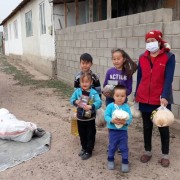Speeches Shim

Ravshan Nazarov is very close to obtaining his attorney’s license. After receiving his law degree, he has been interning as an attorney’s assistant prior to becoming a full-fledged lawyer, as required by Uzbekistan’s regulations.

To stop the spread of COVID-19, people across Central Asia are staying home and practicing social distancing to help flatten the curve. Yet quarantine and isolation can carry additional risks for families experiencing multiple stressors. Small shared spaces, limited mobility, uncertainty about the future, and loss of income are just a few of the factors that can build to domestic violence.

High rates of labor migration in Zafarobod village of Tajikistan leave many families without their primary breadwinners; some men never return home and abandon their wives and children. Another issue faced by the community of Zafarobod village is access to meals for school children.

Sayohat Islomova, 39 years old, lives with her three children in Kapali village of central Tajikistan. Kapali village is a place where women traditionally do not work outside the home and most households depend on men for financial support. However, difficult economic situations have driven some men to search for opportunities outside of Tajikistan, some of which never return home abandoning their families. Women are left to pick up the pieces and find ways to support their families.

In the Kyrgyz Republic, as elsewhere in the world, the government has resorted to quarantine measures in an effort to prevent the spread of the COVID-19. Unfortunately, many families were not able to stock up on food and supplies before the quarantine was enacted. Large families from vulnerable groups have been hit especially hard by lost income due to quarantine measures, leaving many without sufficient access to food.

Comment
Make a general inquiry or suggest an improvement.